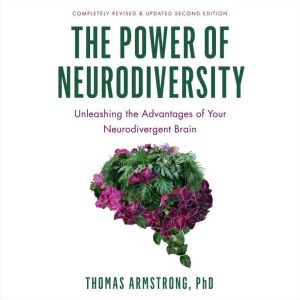

The Power of Neurodiversity
Unleashing the Advantages of Your Neurodivergent Brain (Completely Revised and Updated Second Edition)
Author: Thomas Armstrong
Narrator: Mike Lenz
Unabridged: 10 hr 7 min
Format: Digital Audiobook Download
Publisher: Balance
Published: 07/29/2025
Categories: Nonfiction, Psychology, Neuropsychology, Mental Health
Includes:
Bonus Material
![]()
Synopsis
From ADHD and dyslexia to autism, the number of diagnosis categories listed by the American Psychiatric Association has tripled in the last fifty years. With so many people affected, it is time to revisit our perceptions of people with disabilities.
Thomas Armstrong illuminates a new understanding of neuropsychological disorders. He argues that if they are a part of the natural diversity of the human brain, they cannot simply be defined as illnesses. Armstrong explores the evolutionary advantages, special skills, and other positive dimensions of these conditions, including: autism, ADHD, dyslexia, schizophrenia, anxiety, intellectual disabilities, and mood disorders.
With an emphasis on positive niche construction for each area, The Power of Neurodiversity is a manifesto as well as a keen look at disability, as well as a must-read for parents, teachers, and anyone who is looking to learn more about neurodivergence.



